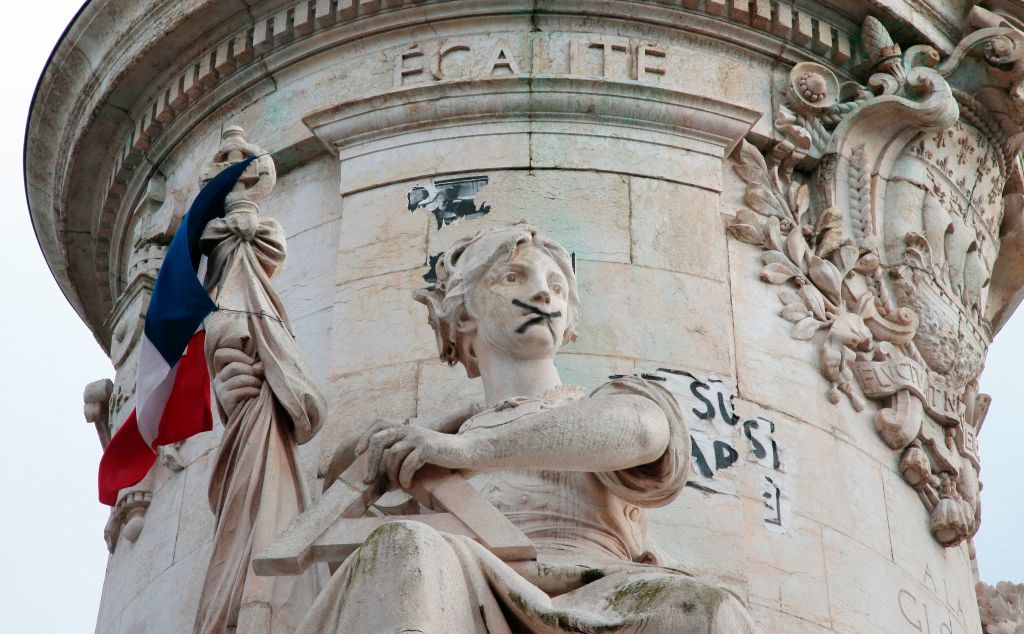From 1940 to 1944, the Vichy regime set aside France’s 150-year-old rousing national anthem La Marseillaise for Maréchal nous voilà, a sycophantic hymn to France’s collaborationist leader Marshal Pétain. Pétain in the southern zone and the occupying German forces in the north brutally punished any singing of La Marseillaise. During the Second World War, Land of Hope and Glory and Rule Britannia were popular hymns of resistance to fascist invasion and oppression by British peoples in these islands and across the world. Rule Britannia was played at the ceremonial surrender of the Japanese imperial army in 1945 by the massed band of Australian, British and American forces. The BBC in its glory days was the vehicle for this music and its inseparable lyrics of resistance and hope.
Imagine the French at their national celebration of musical culture constrained by their state broadcaster to abandon the lyrics of La Marseillaise for a hollowed out orchestral version crafted to suit the forces of faddishness? Despite the words of the Marseillaise being among the most blood thirsty and blood curdling accounts of what is to be done to the enemies of France, French authorities have resisted the wokish diktats to which the BBC has sadly kowtowed. George Orwell’s quip that the British left would rather be seen stealing from the poor box than standing up for the national anthem sadly has lost none of its poignancy.
But there was one attempt to bowdlerize La Marseillaise that should serve as a lesson on this side of the Channel. In 1974 the newly elected 48-year-old president of France, Valéry Giscard D’Estaing, sought to embellish his modernising credentials by slowing down the Marseillaise to muffle its bellicist overtones. The resulting durge provoked ridicule and a contrite Giscard was forced to reverse his ‘reform’.
It is significant that France’s highbrow national music channel France Musique (equivalent to BBC Radio 3 as broadcaster of the Proms) carries an extensive account of the BBC Proms incident that is largely unsympathetic to the British broadcaster’s decision. Marshalling academic specialists it cites Giscard ‘ridiculing himself’, Britain’s pioneering anti-slavery legislation from 1803, Napoleon’s refusal to pick and choose French history (‘J’assume tout, de Clovis à Robespierre’) and the clear-sighted practical point that Land of Hope and Glory and Rule Britannia are neither taught nor sung in schools, are all but absent from the public space and that singing them once a year at the Proms is hardly excessive. The article concludes that the Last Night of the Proms without these two songs ‘makes no sense’. ‘It is like July 14 without the military parades’.
This is a clear example of how the French take a more mature attitude to their history, despite it being far more volatile and controversial than Britain’s. It is not insignificant that the French have produced some of the greatest historians of the nineteenth and twentieth centuries, whose methodologies and historical approaches continue to influence contemporary historiography internationally borrowing from other disciplines such as anthropology and sociology. Pioneering research into the importance of ‘sites of memory’ – physical spaces but also symbols from flags to music – has crafted and finessed out understanding of what constitutes national identity and belonging. Ironically, on this the French are more empirical and the British more ideological in their approach to the nation. The French have not gone in for knee-jerk statue-toppling by mobs devoid of historical knowledge and unwilling to acquire any. President Macron has stated firmly that such action will be firmly resisted.
National anthems are the sound version of a people or nation’s flag. Their role is to bond and unite its citizens behind an idea or a symbol. France has one such song, La Marseillaise, whose monopoly is legislated for in the preamble to the French constitution.
In a peculiarly British way, the United Kingdom has no constitutionally agreed national anthem. And so we share a few played according to place and circumstance. To its credit the BBC has been associated with the Proms since 1927, when Land of Hope and Glory and Rule Britannia were already virtual programme fixtures. But one gets the impression that was another BBC. Those that have devised the ‘Giscard-like’ evisceration of that music have more to do with Rule Britannia’s ‘haughty tyrants’ than the Second World War BBC’s promoters of Britain’s ‘generous flame’.







Comments